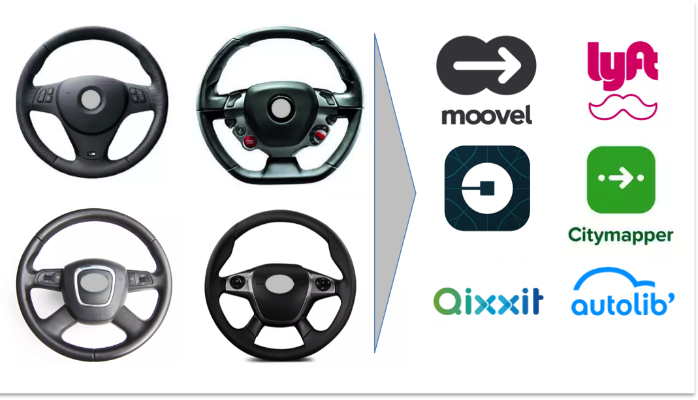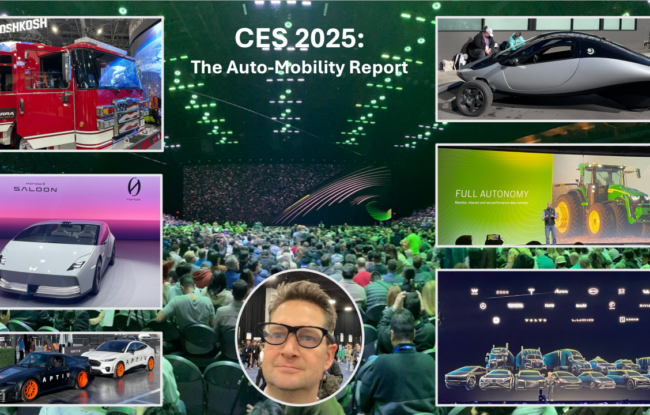When I was in school, you either liked Ford or Chevy, BMW or Mercedes. Comparing Ferrari and Lamborghini trading cards was fun. Everyone picked a car-brand and identified with it. You knew all the statistics: horsepower, acceleration, top-speed (and in rural areas, payload).
Today, schoolyard debates revolve around preferences for Lyft or Uber, DriveNow or Car2Go, Citymapper or moovel. Teens increasingly don’t know – or care – what brand has built the shared vehicle they are driving, or (more likely) being driven in. As we approach the end of driving, the end of ownership, and the mobility revolution, brand preferences will undergo a significant shift. Users will identify more with the logo of their preferred mobility-app, than the vehicle logo on the steering wheel.
Self-driving and shared-use vehicles are finally beginning to converge. Giving up driving and car-ownership is becoming a real option for more and more people (I call it “Zero Accidents” and “Zero Ownership”). In a Roland Berger study, over a quarter of Germans and Americans, and more than half of respondents in China, would rather use a robot taxi than buy a new car.
The Branding Challenge for Car-Manufacturers
It shouldn’t come as a surprise then that UBER was reported to have placed an order for 100,000 Mercedes-Benz S-Class fully autonomous vehicles from Daimler, for delivery from 2020. While discussion ensued on the size and credibility of this order, what this means for Tesla (who was seen as the incumbent for this order), and the delivery date, it should be clear to all manufacturers that this is something we will see more of: mobility brands custom-ordering purpose-built autonomous vehicles. Target date: 2020.
Of course, contract manufacture isn’t new: UPS has contracted out its delivery vehicles for decades, Renault has become manufacturer for Bolloré’s BlueCar car-sharing platform. DHL Deutsche Post went further and purchased a manufacturer of electric delivery vans when OEMs couldn’t deliver one.
What is new, however, is that this is beginning to reflect a separation of the brand and manufacturing of vehicles. Car manufacturers fear that “OEM” will come to mean exactly what it says: original equipment manufacturer… becoming white-label assemblers for a new generation of mobility brands.
In response, Ford, BMW and others have declared themselves to be mobility brands and increased their investments in self-driving and sharing technologies. GM has invested generously in Lyft and Cruise. In turn, Fiat has apparently already accepted their fate as contract manufacturers by offering to build the Apple iCar. Even while being among the leaders in self-driving technology, Daimler has admitted that Apple and others will become formidable competitors… or partners.
Google, Apple and even Baidu comfortably lead most automotive brands in global brand-strength surveys. Uber, Citymapper, moovel and others will join them in due course. In the new world of self-driving, shared transport, perhaps becoming the Foxconn of mobility might not be so bad after all.


